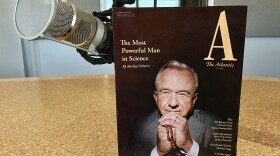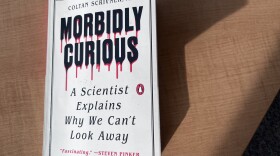
RadioWest
Fridays from 12 p.m. to 1 p.m.
A show for the wildly curious. Doug Fabrizio explores the world through in-depth conversations with writers, filmmakers, scientists, thinkers and others. From KUER in Salt Lake City.
Latest Stories
-
Journalist Michael Scherer had a lofty goal for his profile of Robert F. Kennedy, Jr. He wanted to “help narrow the political divide” separating the country.
-
Forty years ago, the space shuttle Challenger exploded shortly after launch. According to NPR's Howard Berkes, the lessons learned from the disaster are as critical as ever.
-
In a new documentary premiering at Sundance, local filmmaker Abby Ellis follows two scientists and a government official fighting to stave off environmental disaster and save Great Salt Lake.
-
In a new biography, the historian Max Perry Mueller argues that Wakara, a Timpanogos Ute leader, should be considered one of the founding figures of the American West.
-
“Affordability” is a buzzword of the current political moment, and it’s top of mind for Utah lawmakers as they gear up for the general legislative session.
-
Coltan Scrivner is a psychologist who studies why some of us are drawn to look at gruesome things. He calls it morbid curiosity, and he says it’s not a bad thing.
-
In recent years, Utah has seen a surge in winter visitors to its world-class ski resorts. Sam Weintraub, a ski industry observer, isn’t the only one who’s noticed that as more and more people come here to ski, the more it reshapes the skiing experience.
-
On Sept. 10, 2025, political activist Charlie Kirk was shot and killed at Utah Valley University. The very next month, Greg Lukianoff gave a lecture there, about why free speech is an antidote to violence.
-
Is a river alive? That’s the animating question in Robert Macfarlane’s latest book. And if the answer is yes, and rivers are living things, what do we owe them?
-
If you’ve ever wanted to share a room with two great actors talking about Shakespeare, here’s your chance — with Dame Judi Dench and Brendan O’Hea.










